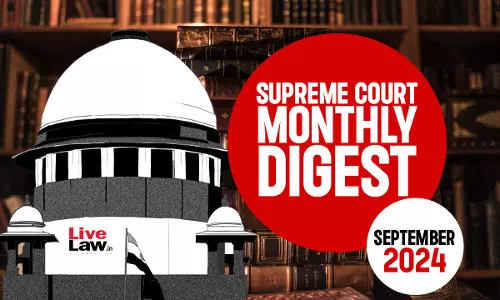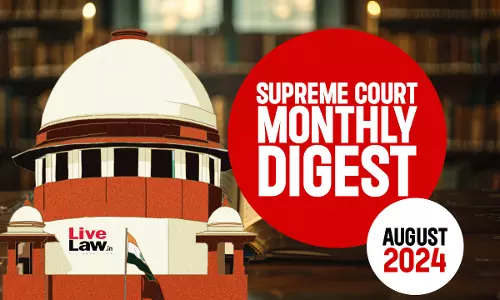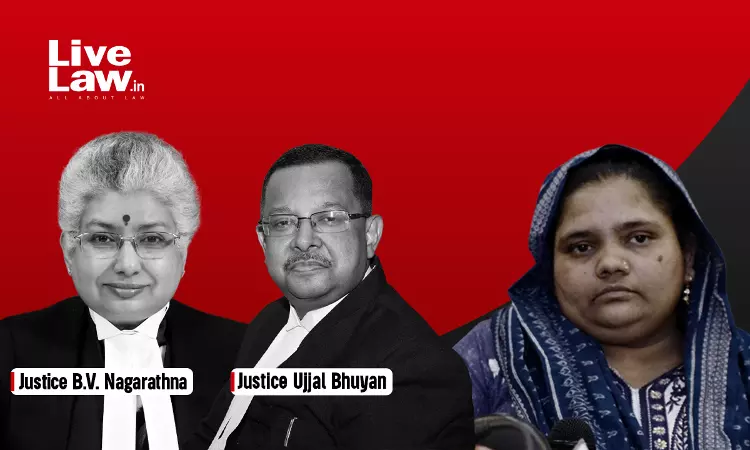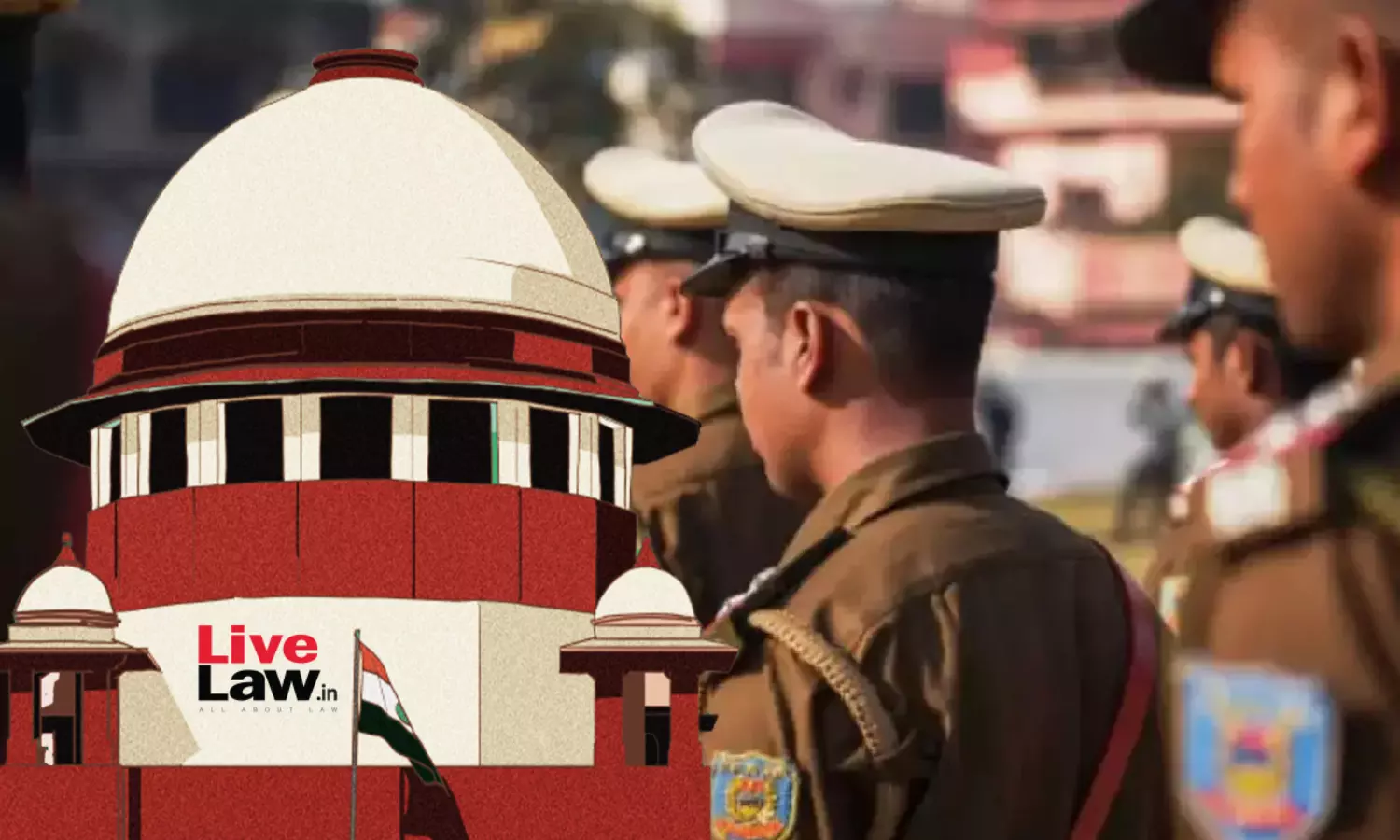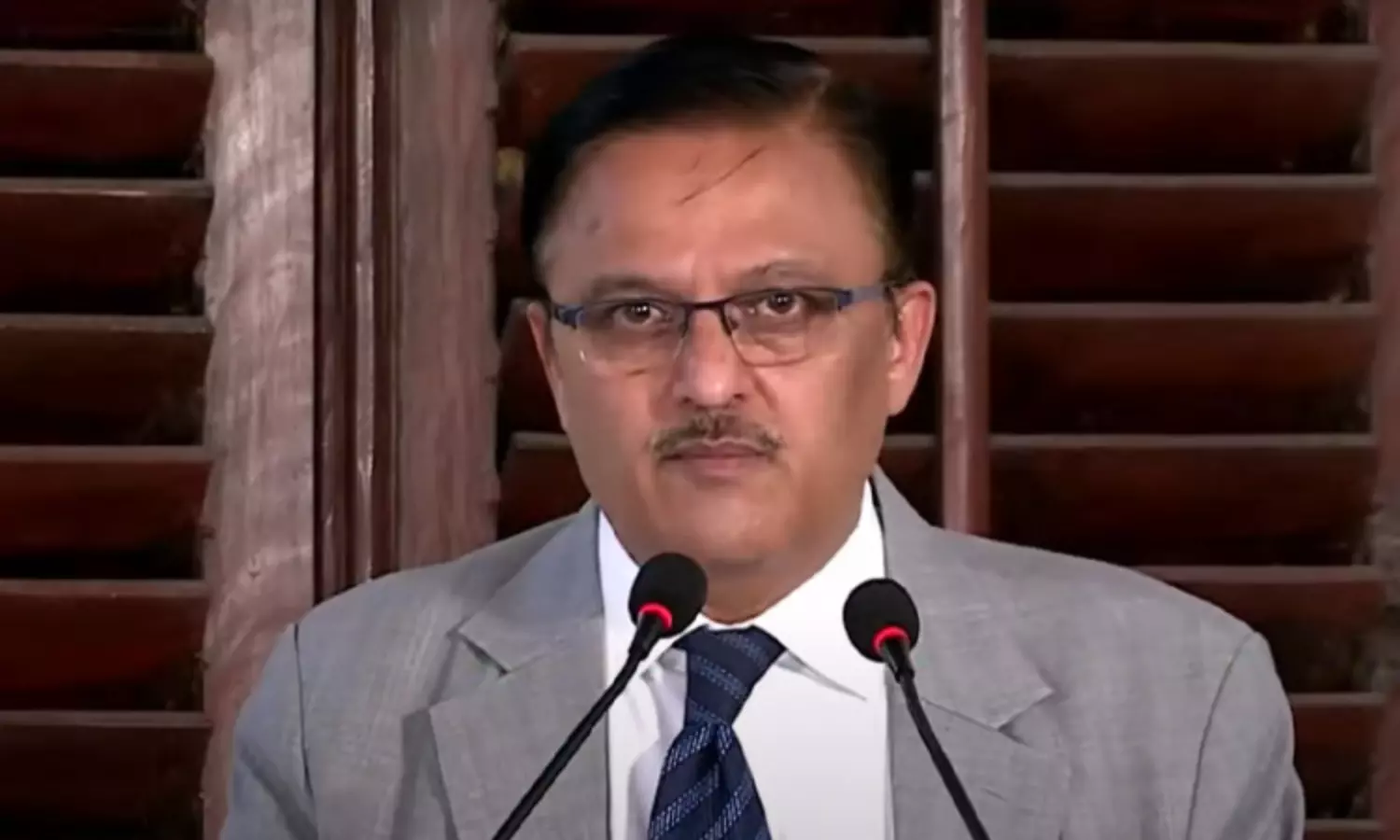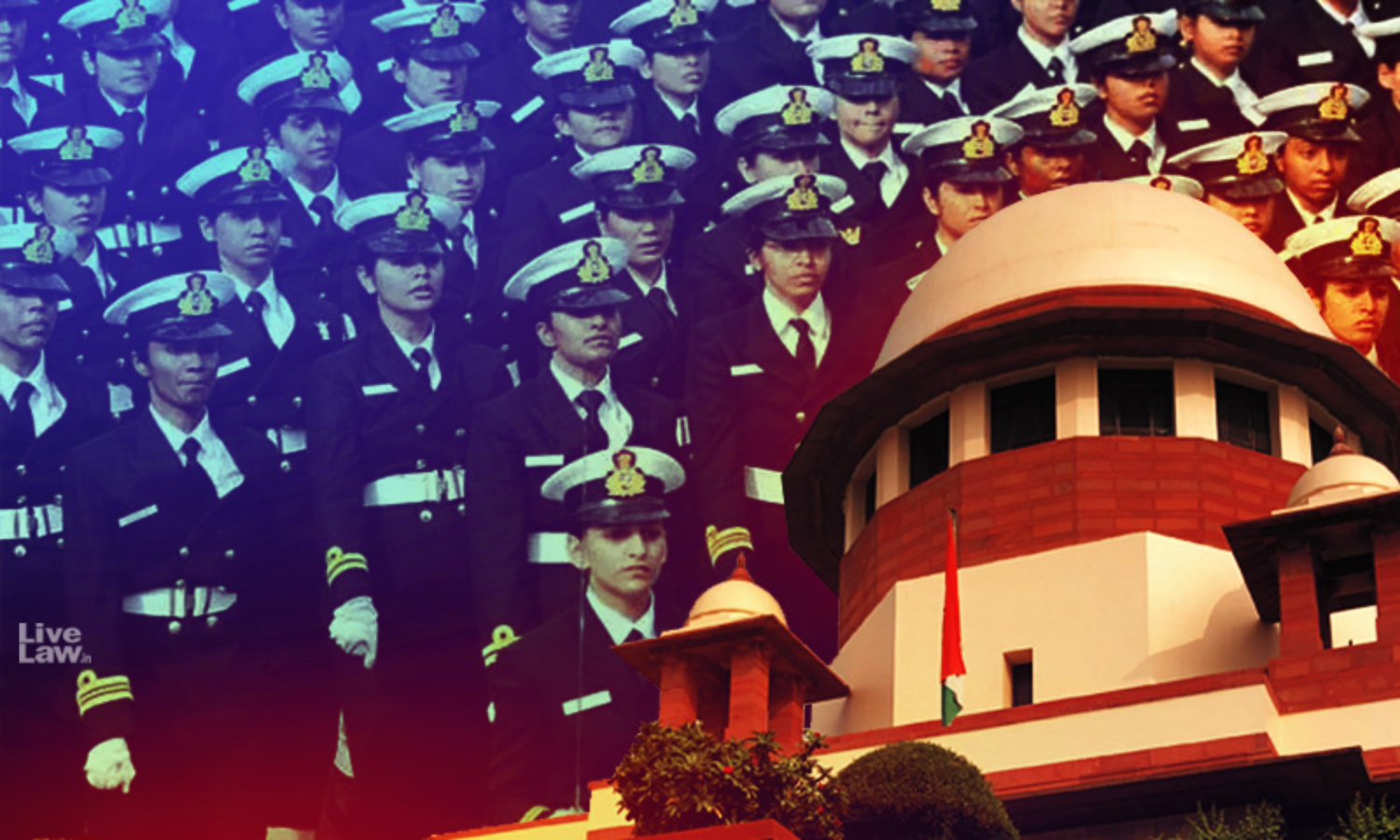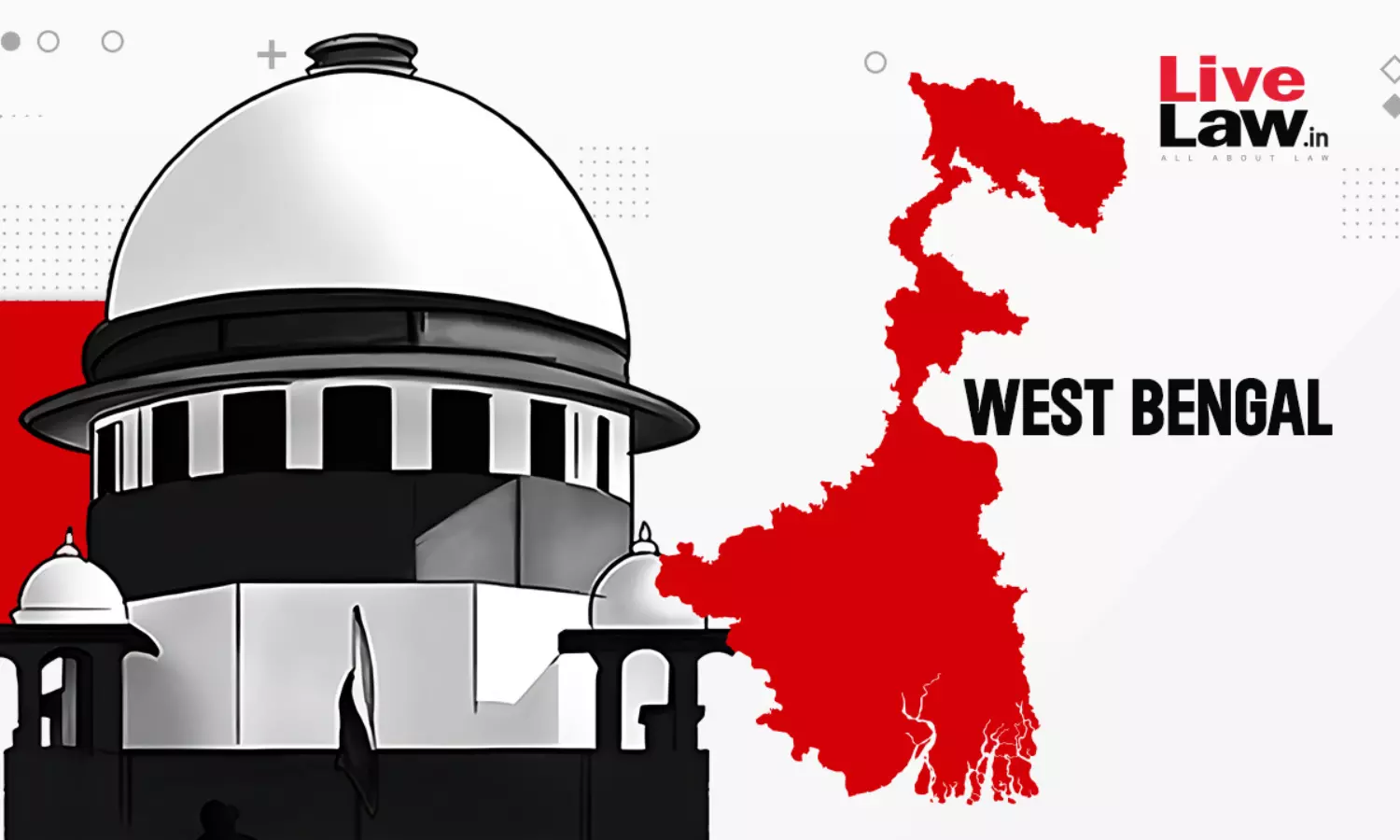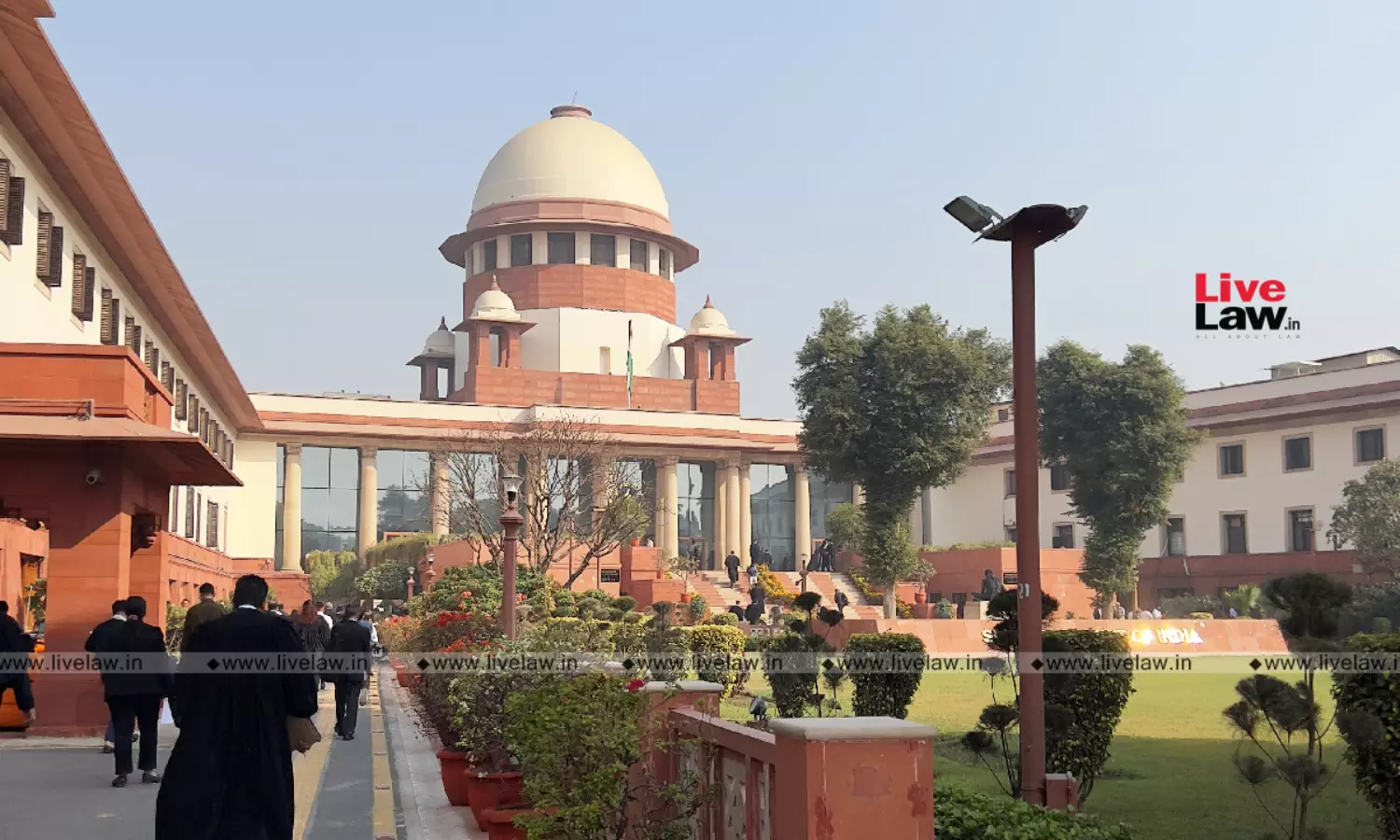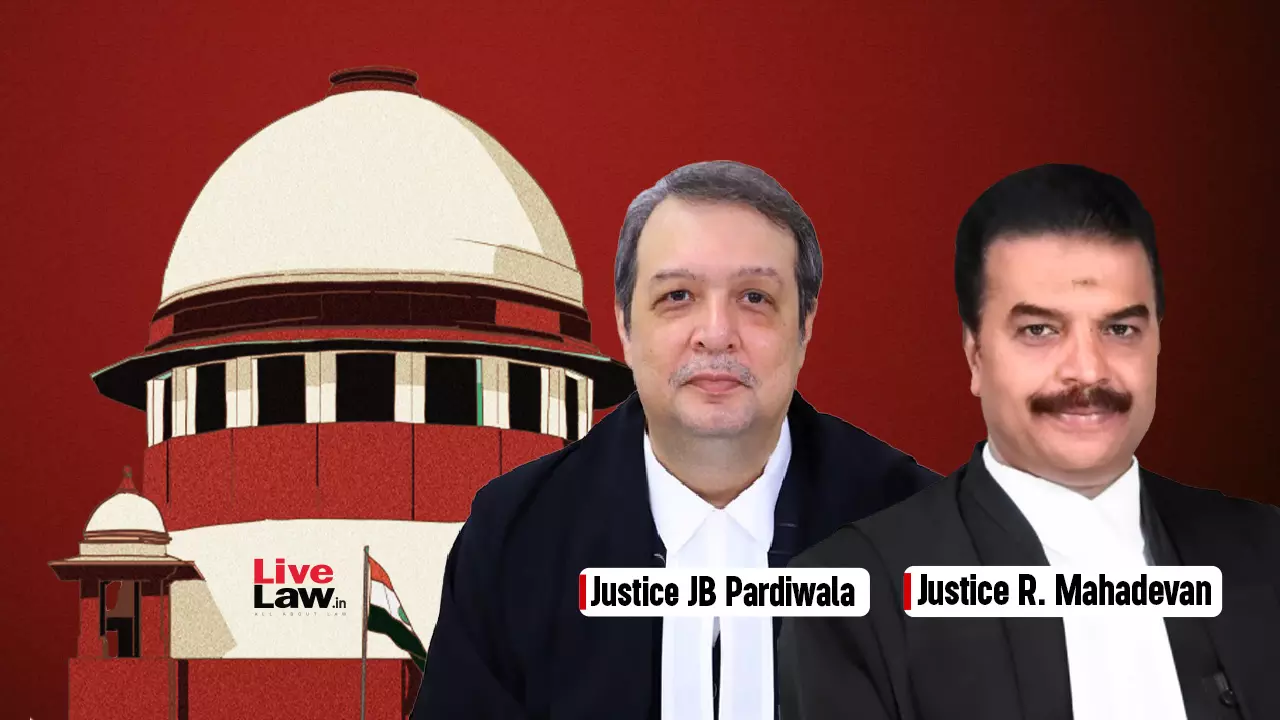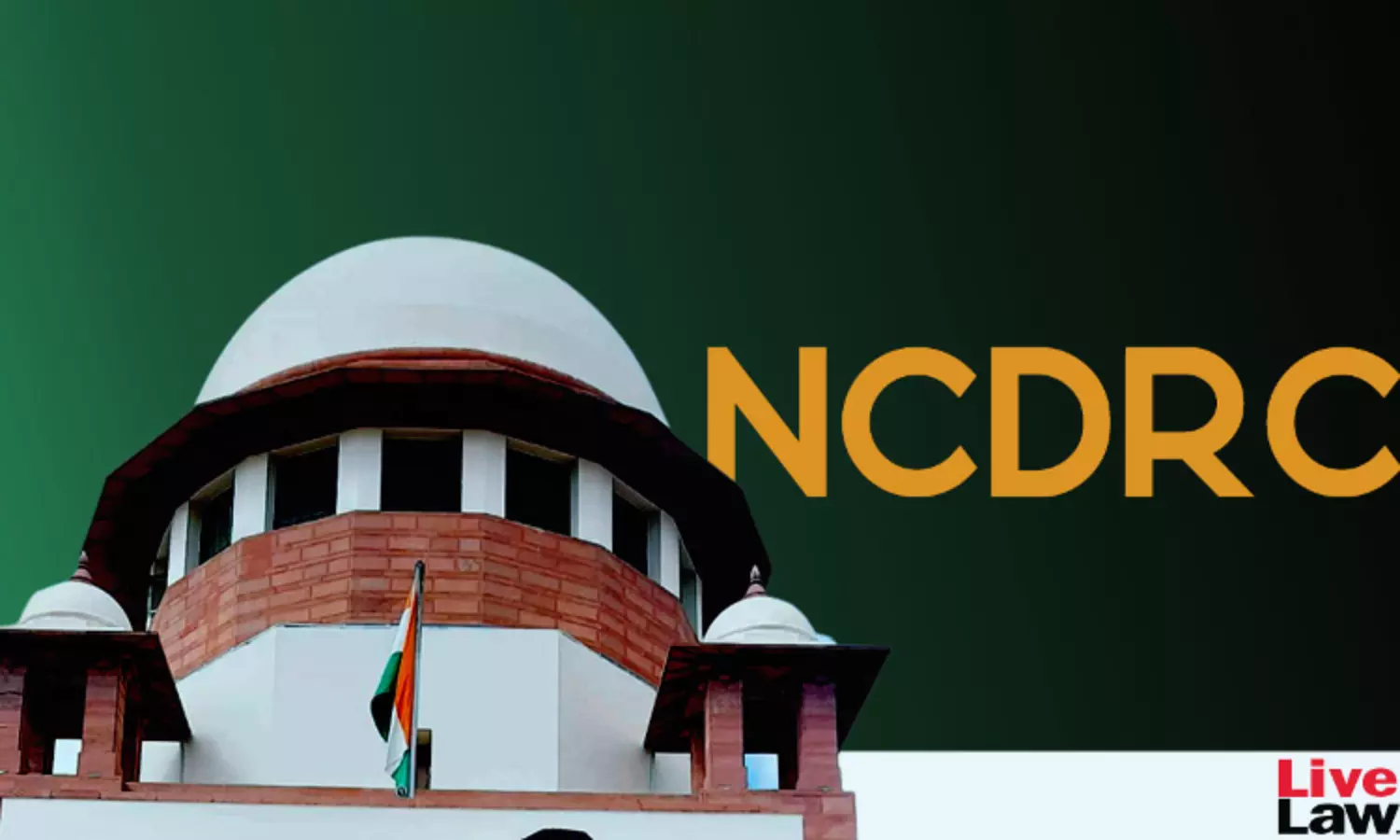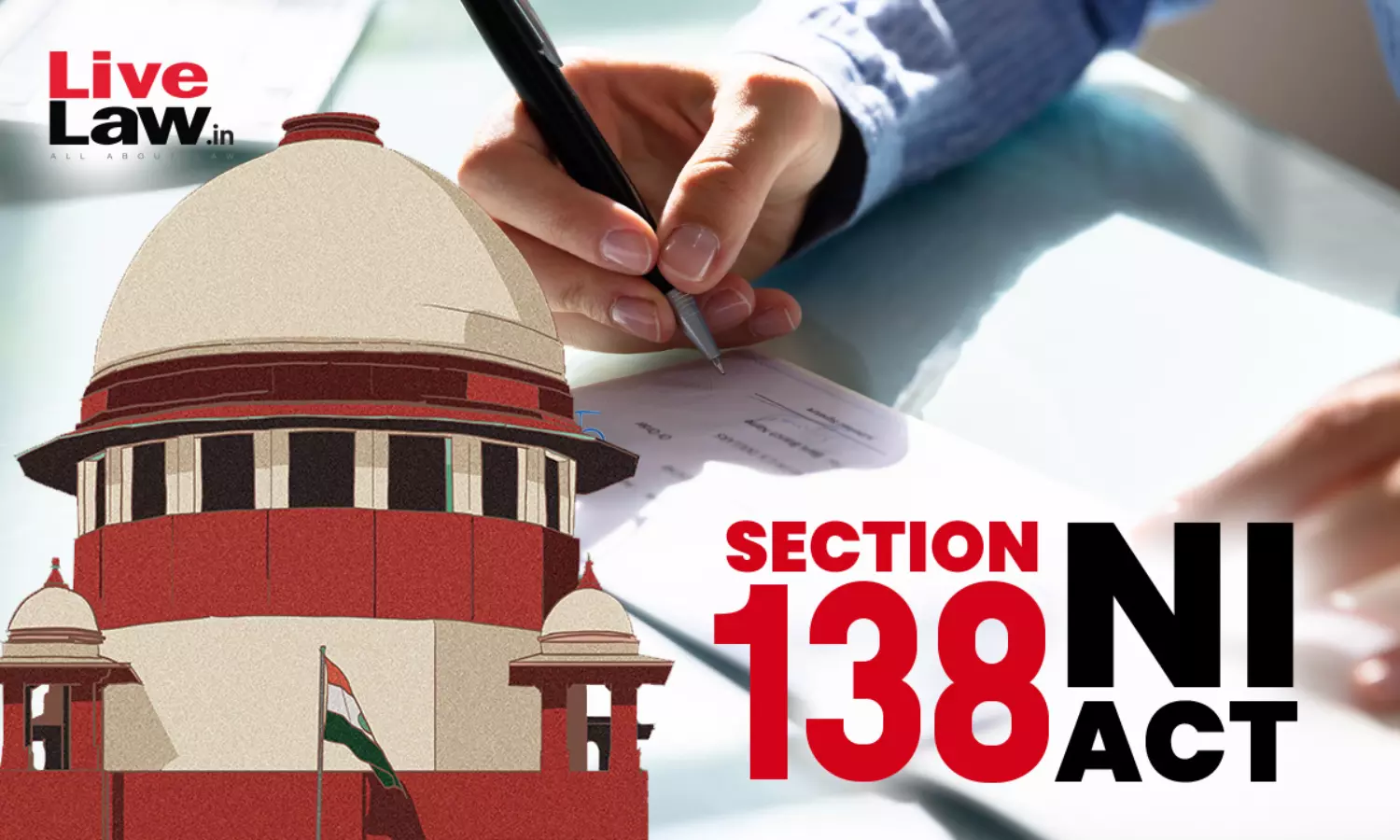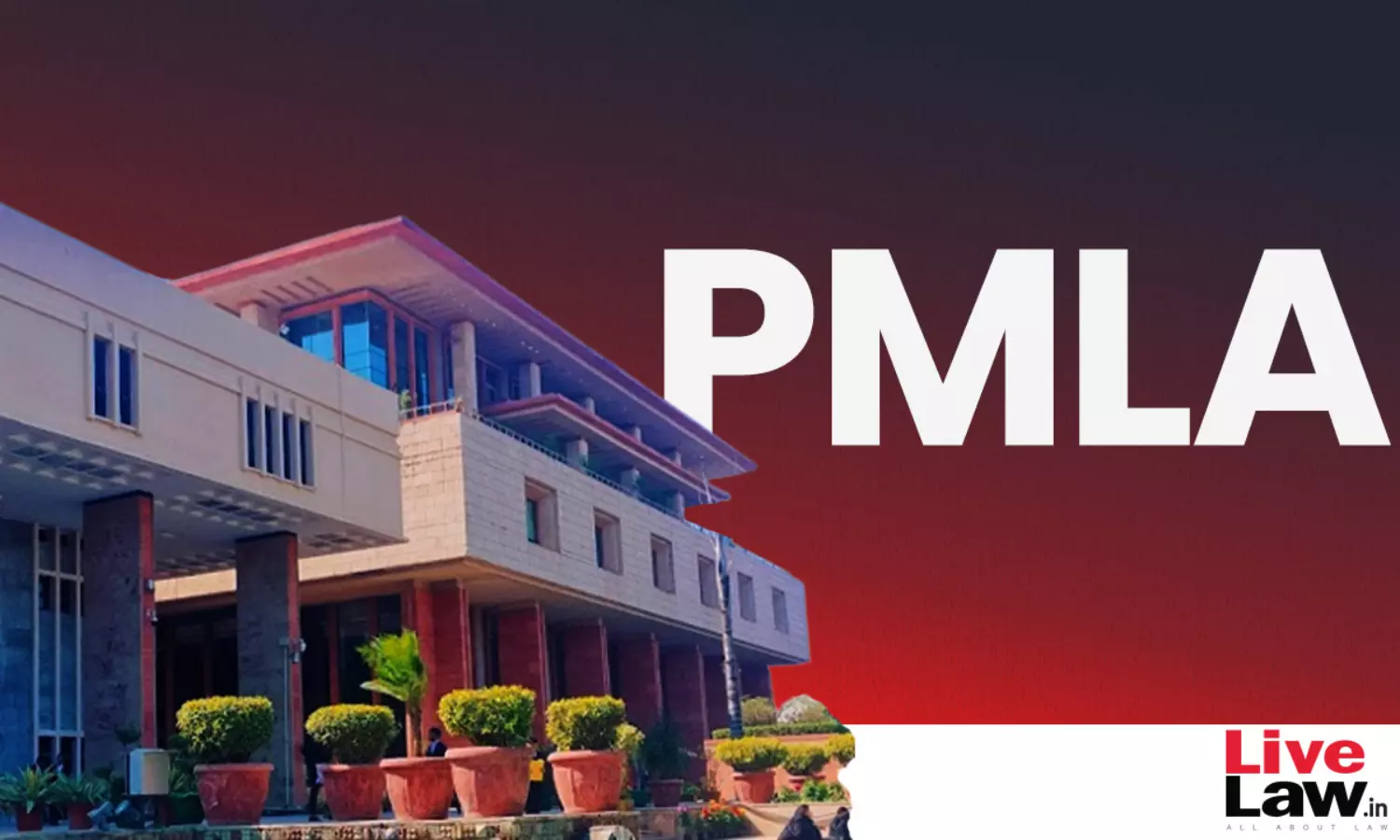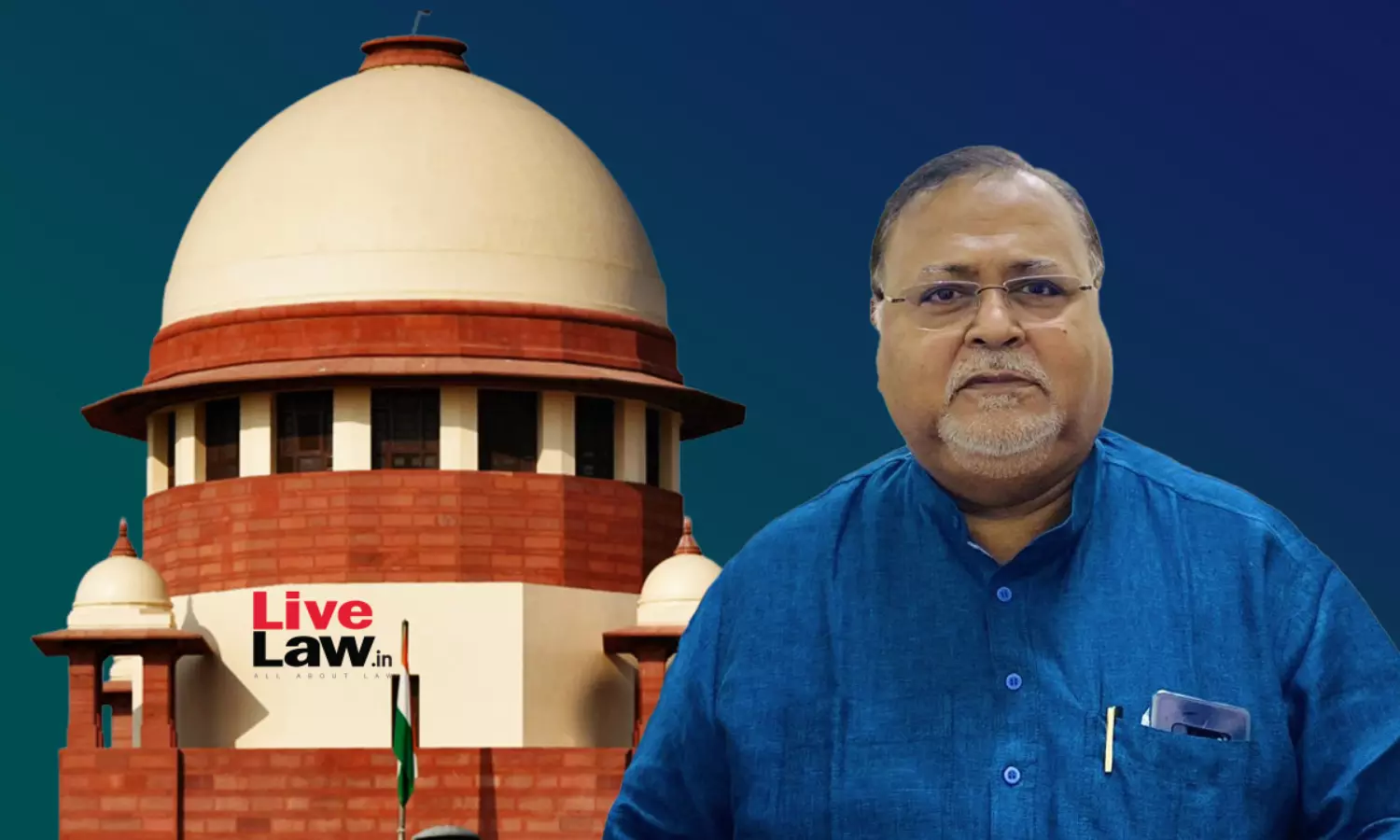- Home
- /
- Top Stories
- /
- Rule Of Law Must Be Enforced...
Rule Of Law Must Be Enforced Unmindful Of Consequences : Supreme Court Observes In Bilkis Bano Case
Awstika Das
8 Jan 2024 11:03 PM
While setting aside the remission granted to the convicts in the Bilkis Bano case, the Supreme Court on Monday (January 8) stressed that in protecting the rule of law, those concerned with it must remain unmindful and unruffled by the ripples of consequences. It also categorically stated that compassion and sympathy have no role to play where rule of law is required to be enforced.The...
This is a premium content
Available exclusively to
Our subscribers
Subscribe Premium INR 1099+GST
Your support helps us to bring you more content at
an affordable subscription scheme !!!
All payment options available
While setting aside the remission granted to the convicts in the Bilkis Bano case, the Supreme Court on Monday (January 8) stressed that in protecting the rule of law, those concerned with it must remain unmindful and unruffled by the ripples of consequences. It also categorically stated that compassion and sympathy have no role to play where rule of law is required to be enforced.
The 11 convicts, who were sentenced to life imprisonment for multiple murders and gang rapes against the backdrop of the 2002 communal riots in Gujarat, were released by the Gujarat government in August 2022, on Independence Day. The top court, however, has now ruled in favour of Bilkis Bano, a gang rape survivor, who had filed a writ petition assailing the remission granted to them. In a significant win for Bilkis and other public interest litigants in the case, a bench of Justices BV Nagarathna and Ujjal Bhuyan today held that the State of Gujarat lacked jurisdiction to decide on remission as the trial took place in Maharashtra. Consequently, the remission orders were declared invalid, and the court directed the convicts to surrender within two weeks.
The court's pronouncement delved into the delicate balance between the rule of law and individual freedom. It emphasised that personal liberty is a fundamental right enshrined in Article 21 of the Constitution, but equally crucial is the adherence to the rule of law. The judges pondered whether the scales of justice should tip in favour of preserving rule of law or safeguarding personal liberty obtained through a breach of the law. They grappled with the question of whether the convicts, having obtained freedom through an order declared invalid, should be sent back to prison.
"When a person's liberty cannot be violated in breach of a law, can a person's liberty be protected even in the face of a breach or violation of law? In other words, should the rule of law prevail over personal liberty of a person or vice versa? Further, should this court weigh in favour of a person's freedom and liberty even when it has been established that the same was granted in violation of law?" the court asked. It added -
"This is a case where [the convicts] have been granted liberty and have been released from imprisonment by virtue of the impugned orders of remission which we have declared and quashed as wholly without jurisdiction and non est. Having quashed the orders of remission, should they be sent back to prison? Whether they must have the benefit of their liberty despite obtaining the same from an incompetent authority with the aid of an order of this court obtained fraudulently and therefore, the same being illegal and carry a stamp of being a nullity and non est in the eye of law? This has been a delicate question for consideration before us."
Despite the convicts enjoying liberty for several months due to the orders under challenge, the court ultimately held that once they were found to be illegal, the natural consequences would follow. The rule of law is the essence of governance and democracy and must be preserved and enforced by the courts, the court maintained, while rejecting the contention put forth by the convicts' lawyers that notwithstanding any error in the remission orders which may lead to their being quashed, the liberty of the convicts ought to be protected in exercise of Article 142 powers.
In answering the question of when the liberty of a person is protected under Article 21 of the Constitution, the bench ruled that just as no one is deprived of their liberty except in accordance with law, a person's liberty must also be protected only in accordance with law. Only when the rule of law prevails will liberty and all other fundamental rights prevail under our Constitution including the right to equality and equal protection of law as enshrined in Article 14, it said.
Speaking about the role of the judiciary, particularly the Supreme Court, as a 'beacon' in upholding the rule of law, the bench said, "The concept of rule of law is closely intertwined with adjudication by courts of law and also with the consequences of decisions taken by courts. Therefore, the judiciary has to carry out its obligations effectively and true to the spirit with which it is sacredly entrusted the task and always in favour of rule of law. In our view, this court must be a beacon in upholding rule of law failing which it would give rise to an impression that it is not serious about the rule of law and, therefore, all courts in the country could apply it selectively. This would result in a dangerous state of affairs in our democracy and democratic polity. Further, in a democracy where rule of law is its essence, it has to be preserved and enforced particularly by courts of law."
Compassion and sympathy have no role to play where rule of law is required to be enforced, the court categorically stated, before adding -
"If the rule of law has to be preserved as the essence of democracy, it is the duty of the courts to enforce the same without fear or favour, affection or ill-will. The manner of functioning of the court in accord with the rule of law has to be dispassionate, objective and analytical. Thus, everyone within the framework of the rule of law must accept the system, render due obedience to orders made and in the event of failure of compliance, the rod of justice must descend down to punish. It is mainly through the power of judicial review conferred on an independent institutional authority such as the high court or the Supreme Court that the rule of law is maintained and every organ of the State is kept within the limits of the law. Thus, those concerned with the rule of law must remain unmindful and unruffled by the ripples caused by it."
"The faith of the people is the source to invigorate justice intertwined with the efficacy of law. Therefore, it is the primary duty and the highest responsibility of this Court to correct arbitrary orders at the earliest and maintain the confidence of the litigant public in the purity of the fountain of justice and thereby respect rule of law," the Court added.
This judgment has highlighted the duty of the judiciary to correct arbitrary orders promptly and maintain public confidence in the purity of justice, reinforcing the primacy of the rule of law in a democratic society. Touching upon the convicts' request to exercise its powers under Article 142 to 'do complete justice', the court said, "Article 142 of the Constitution cannot be invoked by us in favour of the convicts to allow them to remain out of jail as that would be an instance of this court's imprimatur to ignore the rule of law and instead aid persons who are beneficiaries of orders which in our view, are null and void and therefore non est in the eye of law."
The court also pointed to the conduct of the convicts, particularly Radheyshyam Shah who had approached this court in a writ petition and obtained a favourable order by suppressing material facts and making misleading statements. "In such a situation, arguments with an emotional appeal though may sound attractive become hollow and without substance when placed in juxtaposition with our reasoning on the facts and circumstances of this case."
In a bid to uphold the rule of law, the bench finally rejected the plea for protection of the liberty of the convicts. It emphasised that the deprivation of liberty was justified, given that the respondents had been erroneously released contrary to the law -
"In complying with the principles of rule of law which encompasses the principle of equal protection of law as enshrined in Article 14 of the Constitution, we hold that 'deprivation of liberty' vis-à-vis [the convicts] is justified in as much as they have erroneously and contrary to law been set at liberty. One cannot lose sight of the fact that they were all in prison for a little over fourteen years (with liberal paroles and furloughs granted to them from time to time). They had lost their right to liberty once they were convicted and were imprisoned. But, they were released pursuant to the impugned remission orders which have been quashed by us. Consequently, the status quo ante must be restored."
Accordingly, the Supreme Court on Monday morning directed the 11 convicts to report to the concerned jail authorities within two weeks and surrender. "Rule of law must prevail. Since the remission orders are set aside, the natural consequences must follow."
After an 11-day-long hearing that began in August, a division bench of Justices BV Nagarathna and Ujjal Bhuyan had reserved its judgment in this case on October 12. Advocate Shobha Gupta appeared for Bilkis, while Senior Advocates Indira Jaising, and advocates Vrinda Grover, Aparna Bhat, Nizamuddin Pasha, and Pratik R Bombarde represented various public interest litigants. Additional Solicitor-General SV Raju appeared for both the State of Gujarat and the Union of India. The now-released convicts were represented by Senior advocates Sidharth Luthra, Rishi Malhotra, S Guru Krishnakumar, Advocate Sonia Mathur, and others.
Other reports about the judgment can be read here.
Case Title
Bilkis Yakub Rasool v. Union of India & Ors. | Writ Petition (Criminal) No. 491 of 2022
Citation : 2024 LiveLaw (SC) 22
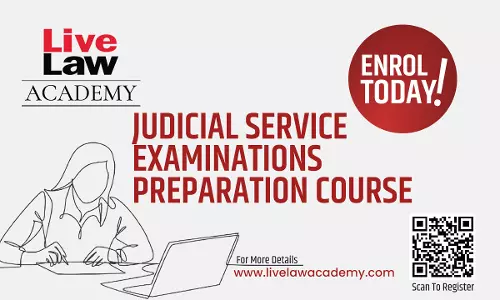
![Supreme Court Quarterly Criminal Digest 2024 [July - September] Supreme Court Quarterly Criminal Digest 2024 [July - September]](https://www.livelaw.in/h-upload/2024/05/27/500x300_541718-supreme-court-quarterly-digest-2024-criminal-law.webp)
